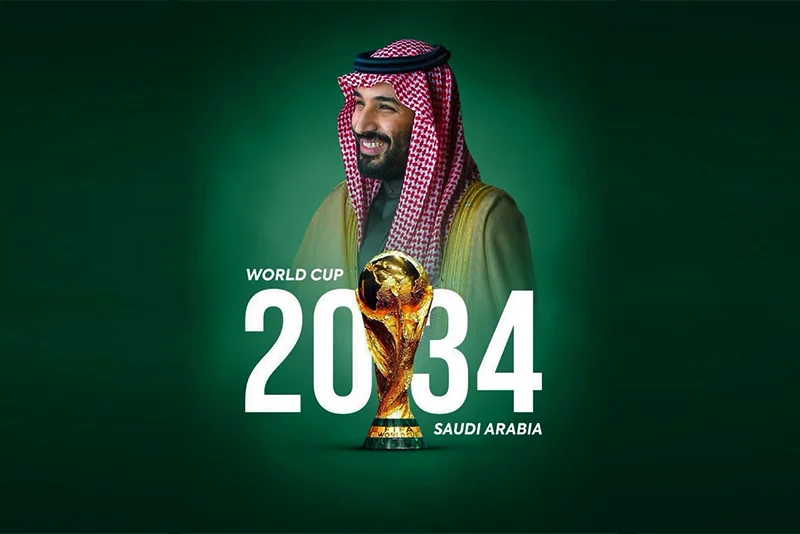Saudi Arabia has officially been named the host of the 2034 FIFA World Cup, marking a historic achievement for the oil-rich kingdom. The announcement, made Wednesday by FIFA, solidifies Saudi Arabia’s position as a major player in global sports, a vision spearheaded by Crown Prince Mohammed bin Salman.
The decision, applauded by over 200 FIFA member federations during a virtual meeting led by FIFA President Gianni Infantino, comes as Saudi Arabia was the sole bidder for the tournament. Infantino hailed the overwhelming support for the kingdom, calling it a “loud and clear” vote of confidence in its capabilities to deliver an extraordinary World Cup.
In his statement, Crown Prince Mohammed bin Salman expressed Saudi Arabia’s commitment to creating a “unique and unprecedented” tournament, leveraging the nation’s resources to captivate football fans worldwide. He emphasized the potential for the World Cup to act as a catalyst for social change, including enhanced freedoms and rights for women.
The announcement was met with a mix of optimism and skepticism. Supporters, including global football icon Cristiano Ronaldo, praised Saudi Arabia’s infrastructure and readiness, with Ronaldo calling it a future “best World Cup ever.” However, critics, including human rights organizations like Amnesty International, warned of significant risks. Amnesty labeled FIFA’s decision as “reckless,” citing concerns over migrant workers’ safety and Saudi Arabia’s human rights record, which remains under intense international scrutiny.
This move is the culmination of Saudi Arabia’s aggressive investment in global sports under its Vision 2030 initiative. Backed by the $900 billion Public Investment Fund (PIF), the kingdom has made waves by signing high-profile athletes like Ronaldo, Neymar, and Karim Benzema for its domestic league and forging partnerships with FIFA and other global sports organizations.
Read also: AFP Sports releases sports best quotes of the year
The tournament will require significant preparation, including building and upgrading 15 stadiums, hotels, and transport networks. Among the ambitious projects are futuristic stadiums, including one 350 meters above ground in the planned city of Neom and another atop a cliff near Riyadh.
FIFA’s decision to award the tournament to Saudi Arabia without a rival bidder shows its alignment with the kingdom’s vision. However, questions linger about the timing of the tournament, as Ramadan in mid-December 2034 could affect scheduling, with January being a potential alternative.
As Saudi Arabia celebrates its victory, the next decade will see heightened scrutiny of its labor laws, human rights policies, and efforts to deliver on its ambitious promises. For FIFA, the 2034 World Cup is set to be both a showcase of football’s global appeal and a test of its commitment to inclusivity and ethical governance.






